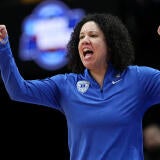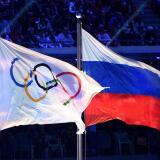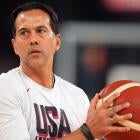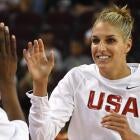2024 Olympics: Why Noah Lyles was allowed to compete in 200m while knowingly being positive with COVID
U.S. sprint superstar voluntarily quarantined after diagnosis, but was not barred from competing in Thursday's 200m
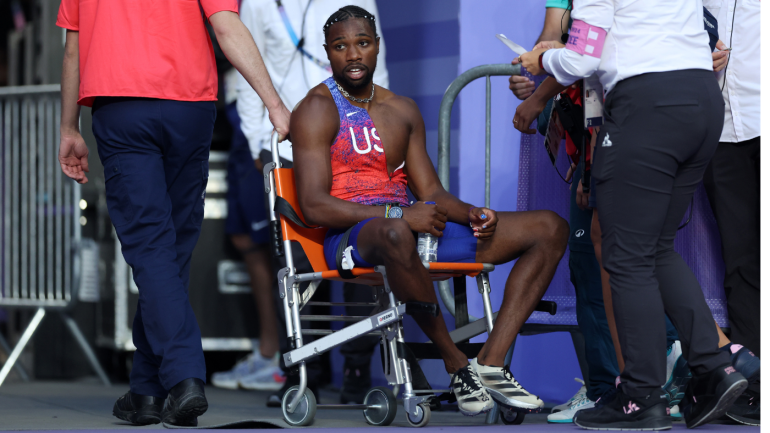
Noah Lyles is the most recognizable athlete to be diagnosed with COVID while competing at the 2024 Olympics in Paris. But he's not the only one.
Lyles' diagnosis two days ago was first reported by NBC on Thursday and confirmed by the athlete after he failed to complete a sought-after sprint double in the 200-meter final, where he finished third.
The 27-year-old won the 100-meter race on Sunday, but was never a serious contender for victory in Thursday's race, eventually earning a bronze medal before struggling to leave the track and ultimately leaving the stadium floor in a wheelchair. He'd cruised to a win in his Monday 200-meter heat the day before his positive test, but qualified third in Wednesday's semifinal the day after and didn't have his patented stretch run Thursday.
"After a thorough medical evaluation, Noah chose to compete tonight," according a statement from USA Track & Field. "We respect his decision and will continue to monitor his condition closely. As an organization, we are rigorously adhering to CDC, USOPC, and IOC guidelines for respiratory illnesses to prevent the spread of illness among team members, safeguarding their health and performance."
In contrast to the Tokyo Games that were delayed to the summer of 2021 by the global pandemic and the 2022 Winter Games in Beijing whose footprint included frequent testing, widespread mask wearing and social distancing, the Paris Games have stadiums full of fans and zero lingering protocols. Athletes and teams, rather than medical personnel, are given the responsibility to gauge their health and respond to issues.
Lyles said he boosted hydration to treat himself and voluntarily quarantined "to not pass it off" to teammates. Games-wide, athletes who are not feeling well are not required to wear masks or wash hands but are encouraged to avoid close contact and utilize single rooms in the Olympic Village and separate transportation to and from events.
He is an asthma sufferer and was seen wearing a mask for two days since his Tuesday diagnosis but said after the race that he'd "never considered" not running the 200. He is, however, leaning toward not running his leg in the 4x100-meter relay final on Friday.
Scientific American reported Wednesday that "at least 19" athletes in Paris had tested positive for COVID, many of them competing in aquatic sports -- including Australian swimmers Lani Pallister and Zac Stubblety-Cook and Great Britain's Adam Peaty.
Some athletes have dropped out of events but Manuel Ertel, a German decathlete, is the only one who's left the Games. A 2024 study of German athletes indicated elite athletes typically had milder infections than non-elite counterparts, but still had symptoms that lingered for several weeks.
A World Health Organization representative said Tuesday that COVID rates have increased worldwide in the last few weeks and that more than 20 percent of COVID tests in recent weeks have been positive.
Lyles said he woke up Tuesday at 5 a.m. not feeling well and immediately summoned doctors and was tested, but his "first thought was not to panic," he said. "I've run with worse conditions, I felt."





